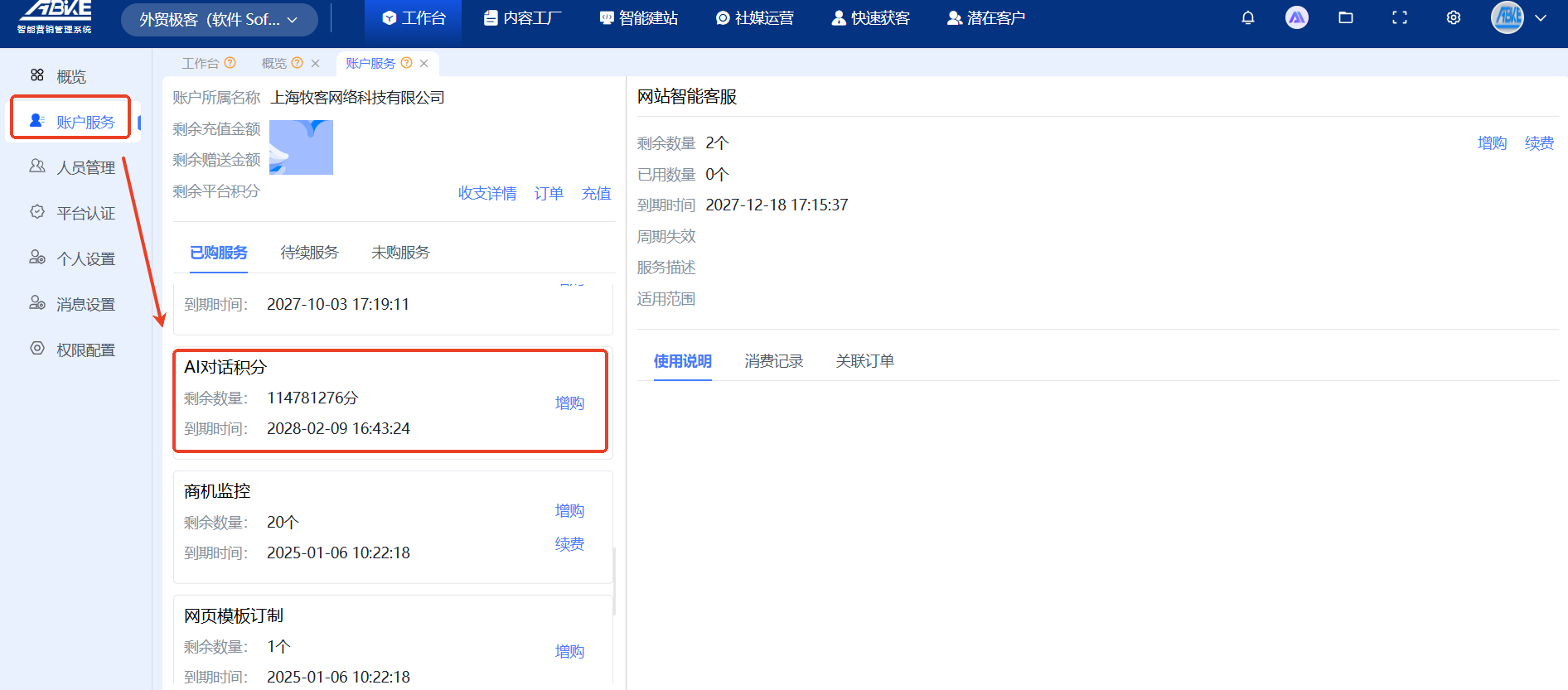 400-076-6558智领未来,外贸超级营销员
400-076-6558智领未来,外贸超级营销员
 400-076-6558智领未来,外贸超级营销员
400-076-6558智领未来,外贸超级营销员

In the realm of foreign trade B2B key customer management, key customers often present high - frequency and complex needs. These needs span multiple aspects, such as product customization, urgent order processing, and after - sales technical support. For example, they may require products with specific technical parameters or need to adjust order quantities at short notice. Traditional customer management methods struggle to handle these complex and changeable requirements efficiently, often resulting in long response times and sub - optimal solutions. This not only affects the customer's immediate satisfaction but also has a negative impact on long - term cooperation.

AI technology can effectively address the above - mentioned pain points. By intelligently binding customer historical data, AI can comprehensively understand each customer's preferences, past purchase behavior, and specific requirements. Based on this data, it can automatically generate customized solutions. For instance, if a customer has a history of frequently purchasing a certain type of product with specific features, AI can recommend similar upgraded products or provide tailored service packages. This personalized approach significantly enhances the relevance of the solutions provided to customers, increasing the likelihood of conversion. The traditional conversion cycle of 30 days can be compressed to just 72 hours through such intelligent customization, greatly improving marketing conversion efficiency.
AI's real - time behavior monitoring and prediction capabilities are also crucial in key customer management. By continuously monitoring customers' online behavior, such as website browsing, product inquiries, and email interactions, AI can predict their future needs. For example, if a customer frequently browses a new product category on the website, AI can proactively provide relevant information and offers. This real - time prediction allows companies to take the initiative in customer service, rather than simply responding to customer requests, further improving customer satisfaction and loyalty.

Let's consider some simulated cases to understand AI's performance in emergency scenarios. Suppose a customer in a different time zone encounters a technical problem with a product during a non - working hour. AI can quickly access the customer's historical data, identify the problem, and provide a solution within seconds. In another case, if a customer urgently needs to retrieve important documents, AI can instantly locate and provide the relevant files. These examples demonstrate AI's ability to break through time - zone and cultural barriers, providing precise support in critical situations.
To improve customer satisfaction and loyalty, companies should first ensure that AI systems are continuously updated and optimized to adapt to changing customer needs. Second, they should combine AI - based services with human - touch interactions, especially in complex situations that require in - depth communication. Third, collect and analyze customer feedback regularly to make timely adjustments to the service strategy. By following these best practices, companies can build a more efficient and personalized global key customer service system.
Different key customers have different characteristics and needs. For large - scale customers with high - volume orders, companies can focus on providing cost - effective solutions and long - term cooperation plans. For customers with high - end product requirements, emphasize product quality and advanced technology. AI can assist in segmenting customers based on their characteristics and provide corresponding interaction strategies. For example, it can suggest the most appropriate communication channels and time for each customer group.

Are you ready to transform your foreign trade B2B key customer management with AI? Click here to discover more about how AI can help you provide exclusive services to every key customer and reshape the key customer experience from passive response to active insight.
.png?x-oss-process=image/resize,h_100,m_lfit/format,webp)
.png?x-oss-process=image/resize,h_100,m_lfit/format,webp)

.png?x-oss-process=image/resize,h_100,m_lfit/format,webp)
.png?x-oss-process=image/resize,h_100,m_lfit/format,webp)
.png?x-oss-process=image/resize,h_100,m_lfit/format,webp)
.png?x-oss-process=image/resize,h_100,m_lfit/format,webp)
